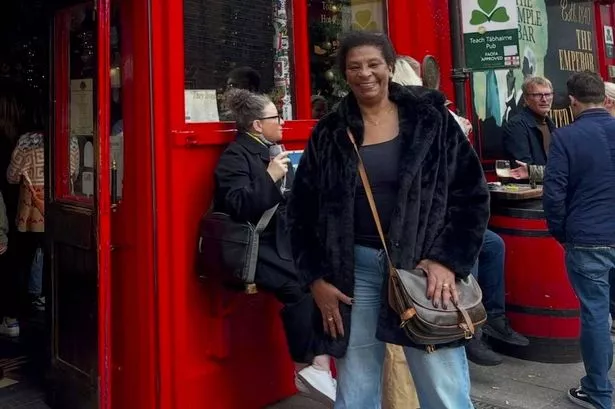Jailza Gatehouse, 60, from Hemel Hempstead says the side effects of the menopause improved after she started taking ‘extreme day trips’, and now she has embarked on 70
A woman who began embarking on ‘extreme day trips’ to tackle menopause -related insomnia has now completed 70 such journeys in just 12 months.
Jailza Gatehouse, 60, embarked on her first EDT last October – a distinctive travel approach involving stays of no more than 24 hours. The mother-of-two from Hemel Hempstead, Hertfordshire, admits she had been observing others’ adventures in an online community for some time, never imagining she would attempt one herself.
Yet once she began, Jailza discovered she was hooked, and has since undertaken 70 EDTs, exploring every European nation except Russia and Ukraine. The Brazilian-born mum reveals that sleepless nights brought on by the menopause prompted her to take action, believing there had to be a more productive use of her time than lying awake in bed.
Since beginning these expeditions, she reports sleeping soundly, as the extensive travel leaves her thoroughly exhausted.
READ MORE: I went to beautiful UK seaside village where rent is £480-a-month for beachfront cottagesREAD MORE: I’ve been everywhere twice – avoid these three European cities where locals hate you
She said: “With my menopause I could never sleep. I would wake up at one in the morning. Menopause used to take over my life. With EDTs, instead of waking up and doing nothing, I go to the airport. And because you walk so much and get so tired I sleep. Now when I am up I go and see the world.
“EDTs changed my life. Menopause was driving me mad. I am taking a short break now for Christmas and already I can’t sleep again. I had to book another one.”
Jailza’s maiden voyage was to Dublin on October 4 last year, as it was just an hour away and still within the UK, costing only £17.99 each way. She admitted that initially she felt extremely nervous, having always harboured concerns about her safety abroad, but those fears have since disappeared.
She explained: “I was in the group for a while but I just read the posts. I thought ‘that’s not me I could never go anywhere by myself.’ After I did my first one I just couldn’t stop. The EDTs brought me back to life. Because I don’t work I was bored, my life was boring. I needed to do something, I just didn’t know what.
“In the past I have said to my husband that we should visit places, and he always said that they don’t like black people there. My mind was always like that, I couldn’t go anywhere because they wouldn’t like black people. When I was on my way to Dublin I remember panicking. I felt so paranoid. I wanted to cry. But when I got there it was nothing like I had thought. It brought my confidence back. EDTs are becoming my therapy.”
Jailza, who invariably travels alone, says her favourite destinations include Italy, Greece, Barcelona, and Budapest, citing her passion for architecture.
The mother hasn’t revisited any destination yet, though certain cities like Prague have captured her heart enough to warrant a return trip. The adventurous traveller has even ventured to Transnistria, an unrecognised state sandwiched between Moldova and Ukraine which appears on the government’s ‘do not travel’ list, describing it as “amazing.”
Jailza hasn’t kept track of her total spending, but admits she rarely secures bargains as she books her journeys last minute, explaining “if I want to go then I go.” Her travel advice includes thoroughly researching your destination, avoiding the front seat in taxis, and not hesitating to ask locals for information.
Her packing essentials consist of two power banks, a brolly, spare socks, and an extra top in case of spillages.
She added: “In the beginning people thought I was crazy. But now they have seen that I can do it, they are all starting to go too. Don’t hold yourself back. Just do it. I have had the best year of my life. After that first trip I have never been scared anywhere.”
Jailza shows no signs of slowing down, with a trip to Marseille in France scheduled for next week, and further visits to Milan and Krakow already in the diary. Looking ahead, she’s keen to expand her horizons further afield, even if it means abandoning her 24-hour time restriction.

